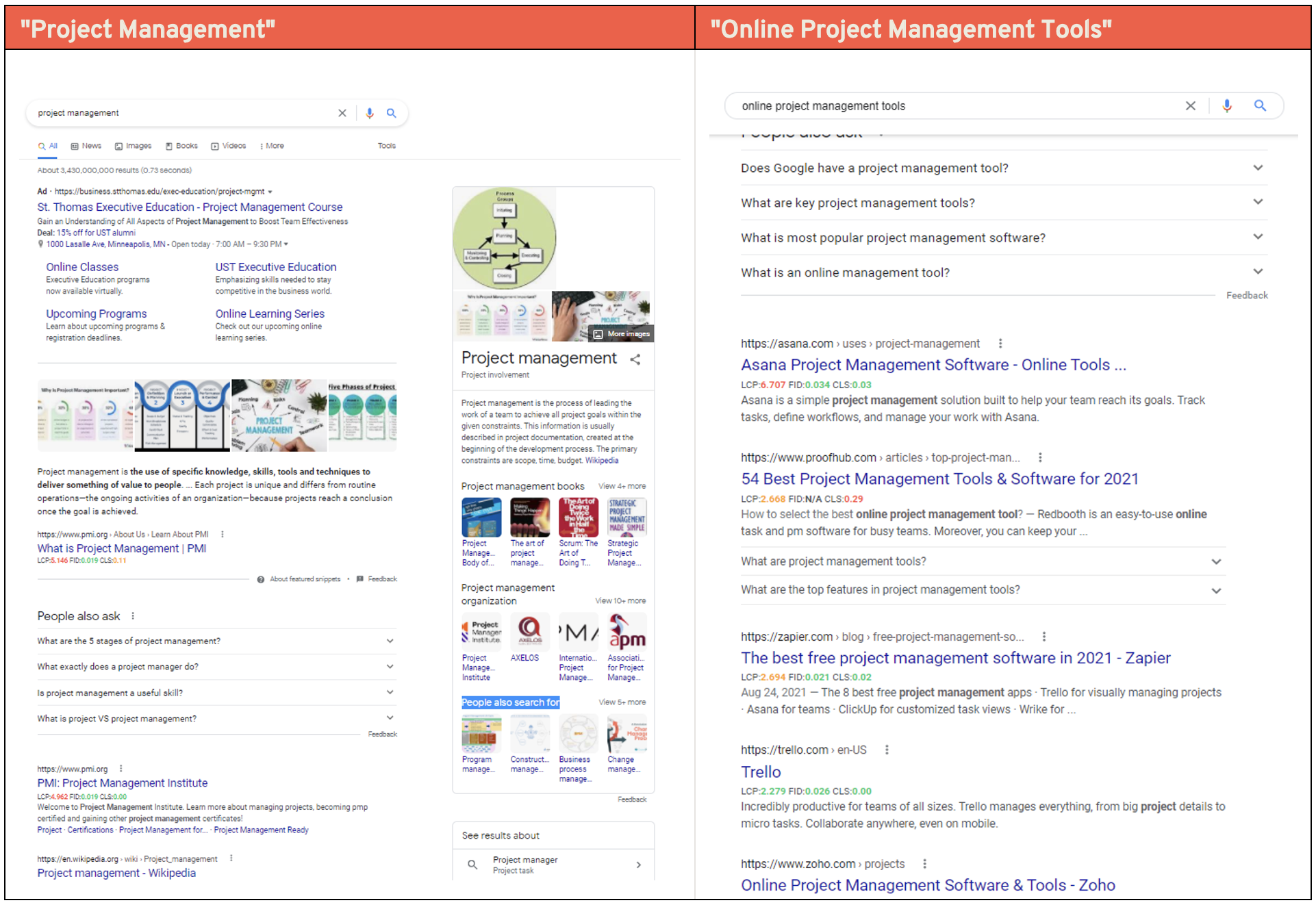The Benefit of Targeting Low-Volume Keywords
Keyword selection is about more than just search volume
In the search engine optimization (SEO) community, strategists consider a number of indicators when choosing keywords, including relevance, intent, search volume, and organic search competition. Collective Measures frequently gets questions about our selection criteria for keywords, and monthly search volume is one of the main metrics we get questions about. The ultimate gold mine for an SEO expert is finding high-volume, high-converting, low-competition keywords. These keywords are few and far between, and low-volume keywords are a fitting alternative.
Often, the questions that arise point to a perception that low-volume keywords are inherently low in value.
- “Why would I target this keyword with only ten searches per month? The data proves no one is searching for it”
- “Is building out content for this topic worth the time and effort? It seems like no one cares about it”
Thinking about keyword and topic selection in a different way — focusing on relevance and intent above search volume — can yield great results for content success in search engines.
Why should I target long-tail, low-volume keywords?
There are many benefits to considering low-search-volume keywords in your SEO strategy:
- They are hyper-relevant. Long-tail keywords are typically low-volume keywords that are super relevant to your target audience. In addition, since they are specifying more information, these queries are typically more targeted. This is important because the more relevant the content, the more likely users are to convert.
- They typically have lower competition levels. Low-volume keywords often give you a unique opportunity to target topics that are highly relevant to your audience — ones that your competitors aren’t likely targeting at all
- They help build interest. Low-volume keywords can give you opportunities to build interest around a small or new niche
- They diversify your SEO strategy. Your content can rank for a wide variety of low-volume keywords at once, helping to multiply your traffic potential
- They typically have stronger commercial intent. You can capitalize on those specific “buying” keywords that draw in users ready to buy your product or sign up to work with you. While you may not see an influx of thousands of new users per month, you’ll have a good chance of ranking for that term and converting that small number of users into customers. These conversions can add up and make a big difference
- They add up. While a single, long-tail (3+ words) keyword may have low search volume, if you add up several low-volume keywords, they often amount to fairly significant search interest. In fact, several industry studies estimate approximately 60–70% of all searches performed online consist of these long-tail keywords. That means popular, high-volume search terms that many businesses focus on only account for approximately 30–40% of total web searches
The search demand curve

Low-volume keywords, in practice
To further demonstrate the value of low-to-no search volume queries, let’s review an example. It’s important to keep in mind that search volume does not equal clicks — just because a keyword gets thousands of searches a month does not necessarily mean:
- Your content is relevant to that query
- Your content will be able to compete for that query organically
- You will obtain traffic from that query (search volume does not equal traffic)
For example, suppose you are the SEO manager for a software company that offers a project management tool, and the company is looking to increase organic visibility and conversions. When performing keyword research, you come across the following keywords, among others:
- “Project Management,” which gets 74,000 searches per month
- “Online Project Management Tools,” which gets just 590 searches per month
Now, look at the search engine results pages for each of these queries below.

It is unlikely that an Individual who searched “project management” would be interested in (or ready to) enroll in an online project management degree program. More likely, they are seeking information like:
- What is project management?
- Project management jobs
- Project management training or degree programs
For a software company or tool provider, an individual searching the query “online project management tool” is a much more attractive prospect than one searching more broadly. This is because we can imply these searchers are in-market for a tool or service rather than seeking high-level information about project management. While these detailed searches naturally come with lower search volume, if the software company were to convert just one of the tool-specific searchers, that’s potentially a big win for a “no opportunity keyword.”
What marketers should know
Focusing primarily on search volume when selecting your content topics or keywords can leave you positioned to miss out on organic traffic, deep in competition and stuck reaching consumers mostly at the top of the funnel (not ready to convert). By considering other factors such as relevancy, intent, and competition above or alongside search volume when selecting a topic will help position you for strong, diversified visibility across the organic landscape.




